
The MiCN Blog
The MiCN features posts by our Community Music Mentors, the MiCN team, and guest contributors. We have invited previous winners of the MiCN Awards, exemplars of excellence in community music leadership, to write a regular blog. Follow our featured mentor as they face up to the daily challenges, the highs and lows, the successes and the qualified successes of being a community music leader. This is where our Network mentors share with us what they do and how they do it. Read and learn!
Policy Blog: Local Government
by Alex Masso, November 2012
Earlier this year I spent some time reading through submissions to the Government's National Cultural Policy consultation. We don't yet know what is in the National Cultural Policy - apparently at the time of writing this it is finished but not funded - but we do have hundreds of documents from arts & culture stakeholders across Australia. When Chair of the National Cultural Policy Reference Group, Julianne Schultz, spoke at the MCA Assembly this year it was encouraging to hear that she had not only spent some time reading them, she commended the high quality of work that went into these submissions.
The best thing about my job?
I've been in this job for about nine months now and I find it enormously interesting, exciting, and challenging. The network is an increasingly active contributor to community-based music making, we're quietly busily about the work of researching the activities and needs of community music groups, providing information to them, and preparing for bigger things to come.
Community-based Orchestra: BlueScope Steel Youth Orchestra
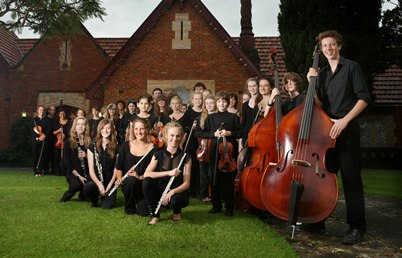 Wollongong Conservatorium of Music and the BlueScope Steel Youth Orchestra have, for over 25 years, worked together to support Wollongong’s Youth Orchestra. Here is an excerpt of 25 YEARS – a Whole Generation of Harmony (The Story of the BlueScope Steel Youth Orchestra).
Wollongong Conservatorium of Music and the BlueScope Steel Youth Orchestra have, for over 25 years, worked together to support Wollongong’s Youth Orchestra. Here is an excerpt of 25 YEARS – a Whole Generation of Harmony (The Story of the BlueScope Steel Youth Orchestra).
Of all the ways in which commerce and art can collide and collude, the nurturing of the dreams of youth must surely be among the most worthy.
Community Choir Survey
The Music in Communities Network is currently involved in small research projects on the topics community music groups in Australia, community music practise, the needs of our members, and issues affecting community-based music making.
Music joins the heart and mind
By Tina Broad. Published in Music Forum magazine, Vol 18 Issue 4 (August 2012)
Tina Broad navigates some of the science around music and the brain
Acclaimed neuroscientist, Oliver Sacks, says music calls to both parts of our nature, the intellectual and emotional. ‘We may be moved to the depths,’ he says ‘even as we appreciate the formal structure of a composition.’
Community-based Orchestras: Coffs Harbour City Orchestra
July 2012
In this guest post about Coffs Harbour City Orchestra, Pamela Fayle tells us how the group operates and describes its work in serving the local community.
Our orchestra is a community orchestra with members from the Coffs Coast area ranging from 12 years old to in their 80s and ranging in musical abilities from beginners through to people who have had professional careers and are very good. We work with that range of abilities so we are not the Sydney Symphony, but we have such fun and strive to be as excellent as we can while being as inclusive as possible. We never turn down anyone who wants to play regardless of instrument balance and often transpose parts for particular instruments to restore the balance of sound if we have too many or too few of certain instruments.
Community-based Orchestras: SBS Youth Orchestra
July 2012
Here is a guest post by Ian Hamilton describing the history of the orchestra and the ways in which businesses and institutions can support community-based music groups. Ian is Honorary Secretary, SBS Radio and Television Youth Orchestra.
Ian Hamilron
The SBS Radio and Television Youth Orchestra was formed in 1988, a year after Maestro Matthew Krel approached the Television Production Department with a suggestion that the SBS Multicultural Charter would be a good fit with a Youth Orchestra.
El Sistema
There is a great deal of interest, in the music world (particularly the world of classical and community music) in the Venezualan El Sistema program. I thought it was time for a small collection of articles, links and news articles about the Venezualan program and the worldwide impact it is now having, including a summary of what is happening with its Australian offshoot, Sistema Australia.
Who hires a Conductor?
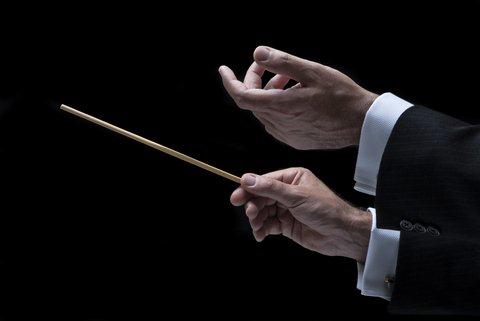 One of the advantages of our national network of community-based music makers (not to mention the wider industry network of the Music Council of Australia) is being able to find answers to questions from our members.
One of the advantages of our national network of community-based music makers (not to mention the wider industry network of the Music Council of Australia) is being able to find answers to questions from our members.
This month's question is about community groups (the question came from an orchestra) hiring conductors for a concert.
- Do you engage professional arts workers / educators / conductors to work with your community group?
- Do you use a formal contract?
- Are there any good (or not so good) experiences with contracting conductors that you can share?
- Does your group have a simple contract that you would be willing to share?
- Do you have set rates of payment?
This email address is being protected from spambots. You need JavaScript enabled to view it. if you can share your experience, knowledge or even a sample contract with other members of the network.
Profile: The Con Artists
 This is a feature article from Music Forum magazine, Vol 18 Issue 3 (May 2012) by
This email address is being protected from spambots. You need JavaScript enabled to view it.
.
This is a feature article from Music Forum magazine, Vol 18 Issue 3 (May 2012) by
This email address is being protected from spambots. You need JavaScript enabled to view it.
.
Watch the Con Artists performing for the Illawarra Folk Festival in January 2012.
Several years ago, Wollongong–based conductor and educator David Rooney took on the role of directing a community concert band, the Concord Concert Band (previously Concord 80). Over the course of three years Rooney developed and expanded the group into a lively folk/gypsy/klezmer band, a move away from its concert/wind band roots but very much reinforcing its role as a community music group.
With a vast line-up of wind, brass, percussion and string instruments, the Con Artists’ high energy repertoire is influenced by the musical traditions of New Orleans brass bands, Klezmer, Balkans, French-Canadian fiddle music, Italian Folk, and others.
Music Festivals in Australia
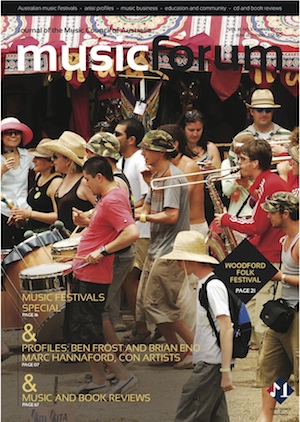 by Richard Letts. Published in Music Forum magazine, Vol 18 Issue 3 (May 2012)
by Richard Letts. Published in Music Forum magazine, Vol 18 Issue 3 (May 2012)
The musical world is driven by passion. The passion is there to hear and see in the performances of the musicians and in the people who present them. With a pub gig, you can guess what it’s about. With a festival, it’s clearer: a lot of program decisions have to be made and there is almost bound to be a philosophy at work, often described in the press by the Artistic Director.
The May 2012 edition of Music Forum takes Australian music festivals as its theme. We have put together a list of 350 Australian music festivals. Who knew there is such an astonishing number? Many of them present just one genre of music, some present multiple genres. Already, in that simple division, we can see two types of passion, one that finds musical depths through a special interest in one musical style, the other that takes a multiple view of the world.
Ten people were invited to write about the festival they organise or with which they have strong familiarity. Ten out of 350 only just begins to be representative. Nevertheless, we can see that each of these festivals is a particular world. The highest value may be place in the music in itself, or music may also be a means to other ends such as social integration, or profit or fame.
A SPOON FULL OF KOORIES HELPS THE FESTIVAL GET ON DOWN
By Jessie Lloyd. Published in Music Forum magazine, Vol 18 Issue 3 (May 2012)
'I would like to pay my respects to the traditional owners, past and present…’ is a popular statement being used by Indigenous and non-Indigenous speakers at events, in particular music festivals. I feel nothing but pride to be at a gig that respectfully acknowledges the traditional custodians of the area, and endeavours to recognise the significance of past atrocities experienced by Indigenous people as a whole.
But in saying that, I feel it is important to clarify the role these Indigenous ceremonies play at Australian festivals, and encourage a respectful and culturally appropriate engagement with the content.
Policy Blog: National Cultural Policy Submission
April 2012
In the lead up to the imminent release ot the National Cultural Policy, we are revisiting some of the submissions made to government and the recommendations in them. Here is the Music in Communities Network's own submission.
Comparing Apples with Oranges: Participation in Arts & Sport
Did you know?...
In 2010, an estimated 14.4 million persons aged 15 years and over, or 82.3% of the population living in occupied private dwellings, participated at least once annually in physical activity for exercise, recreation or sport. This is the total participation rate in any physical activity. The weekly participation rate is 69%, regular participation rate (more than three times per week) is 47.7%, and the frequent participation rate (more than five times per week) is 28%
An estimated 93% of the population participates in the arts. The figure for creative participation is 40%
For music, the total participation rate is 62%, while the creative participation rate is 15%
Policy Blog: Multicultural Arts
By Alex Masso, April 2012
In preparation for the Multicultural Arts Forum in Sydney, and the upcoming release of the National Cultural Policy, I thought I would look at some of the issues raised by three of the key Mulicultural Arts bodies in Australia: Brisbane Multicultural Arts Centre (BEMAC), Kultour, and Multicultural Arts Victoria (MAV). Kultour is the national body, with representation from MAV, BEMAC, and others.
All of their submissions referred to Australia's multicultural policy, released last year, and other relevant documents such as the UNESCO Convention on the Pretoection and Promotion of the Diversity of Cultural Expressions. The overriding impression I had from reading the three submissions were that a) Australia's cultural diversity, and multicultural arts, is real and incredibly rich, b) the National Cultural Policy is an opportunity to put into action the assertion that Australia respects and supports cultural diversity, and c) there is unrealised potential in the sector, which organisations such as these are well aware of.
Making Music Being Well: How You Can Get Involved
By Alex Masso, 5 April 2012
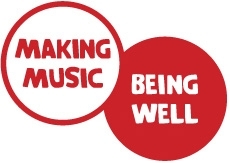 Making Music Being Well is the national week-long celebration of music and wellbeing, a partner program to the Music in Communties Network managed by Music: Play For Life, in partnership with the Australian Music Therapy Association. Last year over 50,000 people took part in events around the country, more than half of those were actively making music! It's happening again this year from 21-27 May.
Making Music Being Well is the national week-long celebration of music and wellbeing, a partner program to the Music in Communties Network managed by Music: Play For Life, in partnership with the Australian Music Therapy Association. Last year over 50,000 people took part in events around the country, more than half of those were actively making music! It's happening again this year from 21-27 May.
In my previous job, at Wollongong Conservatorium of Music, we held several events as part of Making Music Being Well. At one memorable concert a couple of years ago we presented The Rockers, a rock band for young adults with intellectual disabilities. They hadn't performed very often so it was great to use the opportunity of this national campaign to hold a concert for the band. The other half of the concert was the Djembe Gems, an African drumming group based at a local Women's Centre. This was the group's first public performance so the participants' family and friends had never heard them play together.
The two groups were very different but together they presented a very powerful message about the benefits of playing music. They also sounded great! The following year the Djembe Gems joined us again but we moved to a bigger venue and they were one of the first groups to perform in the newly renovated Town Hall.
Both of these performances were actually very simple and straightforward to organise and made a conscious effort to have someone actually talk about what it is that they do and the benefits of music making, both at the concert and on ABC local radio.
Pipe Bands at Brigadoon
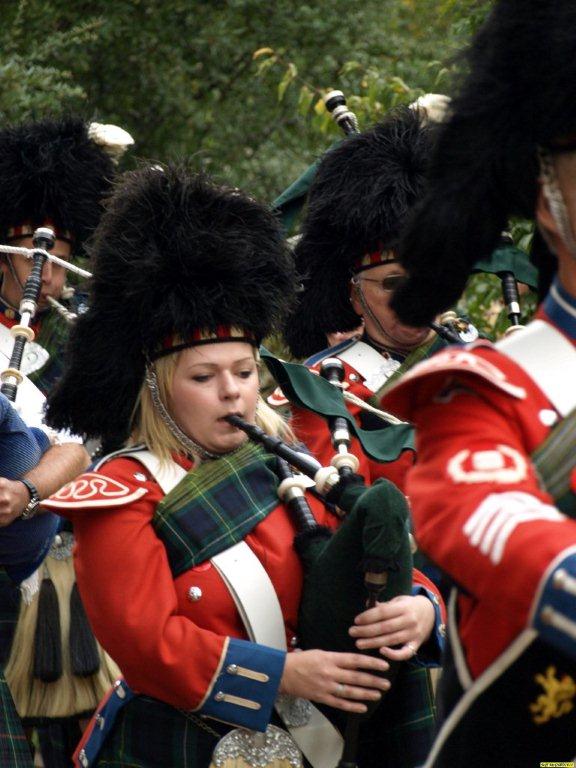 By Alex Masso, March 2012
By Alex Masso, March 2012
When I was growing up in Bowral we would sometimes visit "Brigadoon", one day each year when the town of Bundanoon becomes a major Highland Gathering for the day. When I was in my late teens I joined a newly formed pipe band in the area – The Highlands Pipes and Drums - and one of our first big gigs was at “Brigadoon”. Some of the most distinctive things I remember about playing in a pipe band - the street march, the massed bands, and the comeraderie withing the pipe band community (and within bands of course) - are all a major part of Brigadoon.
I asked Alaistair Saunders from Brigadoon about this year's event on 21 April, and what it means after 35 years as a gathering for Pipe Bands.
Alex Masso: Tell me how Brigadoon has evolved as a musical event.
Alaistair Saunders: In 1977 a group of community minded people got together and decided that the Boronia Festival which had been running in Bundanoon for some considerable years was faltering and there was a need to inject a new project into the village. This passionate steering committee consulted with various community groups and decided to create a Scottish gathering, named The Bundanoon Highland Gathering, “Bundanoon is Brigadoon".
MUF 2012: Let there be Uke!
By Alex Masso, March 2012
In the lead up to this year’s Melbourne Ukulele Festival (MUF) I thought I would find out how such a tiny instrument can have a festival all of its own, how a festival can seamlessly combine international visitors and community groups, and what motivates the community of organisers behind it.
Dean W. Denham, MUF Director, tells us how can came across the “little instrument with a big heart” and what lies behind one of the few Ukulele Festivals in Australia.
Blog: Community Music Online Part 1
This year we will have a series of blogs, workshops and other resources to help you navigate the online environment, websites, social media, and more.
In Community Music Online: Part 1, we look at where to find help and give a quick guide to Social Media. Read the article if you're a registered member (you'll need to log in).
Thursday 17 November, 2011
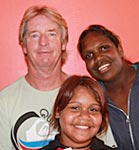 2010 MiCN Award winner Peter Lowson has been working with Indigenous Youth and Adult education programs since 1983. In 2004 he started Drum Atweme, initially as a means of encourage school attendance. Although primarily Afro-Cuban and Brazilian influenced, the rhythms are worked around the songs and stories of the indigenous participants’ culture. The program has transformed the lives of countless Alice Springs town camp-based children.
2010 MiCN Award winner Peter Lowson has been working with Indigenous Youth and Adult education programs since 1983. In 2004 he started Drum Atweme, initially as a means of encourage school attendance. Although primarily Afro-Cuban and Brazilian influenced, the rhythms are worked around the songs and stories of the indigenous participants’ culture. The program has transformed the lives of countless Alice Springs town camp-based children.
Peter has been our MiCN Mentor blogging for us this month but this week we hear from someone else...
 Here's another story from a Drum Atweme performer...
Here's another story from a Drum Atweme performer...
Hi, my name is Alexis and I am 13 years old. I’m from Ti Tree which is the birth place of my great great grandmother. Ti Tree is 200 kilometres North of Alice Springs and a very wonderful place. I speak Walpiri Arrernte language and English. I understand a little bit of Luritja and have very cool friends teaching me.
I joined Drum Atweme early 2010 and have had wonderful experiences like going to Uluru and playing in the desert festival. Me and my sister did a play called Bamba and the Big Tree and in March we are going away to Melbourne.
Practising for 'Bamba and the Big Tree'.
From left to right: Alexis, Mikalya and Ella, Alexis' sister.
Thursday3 November, 2011

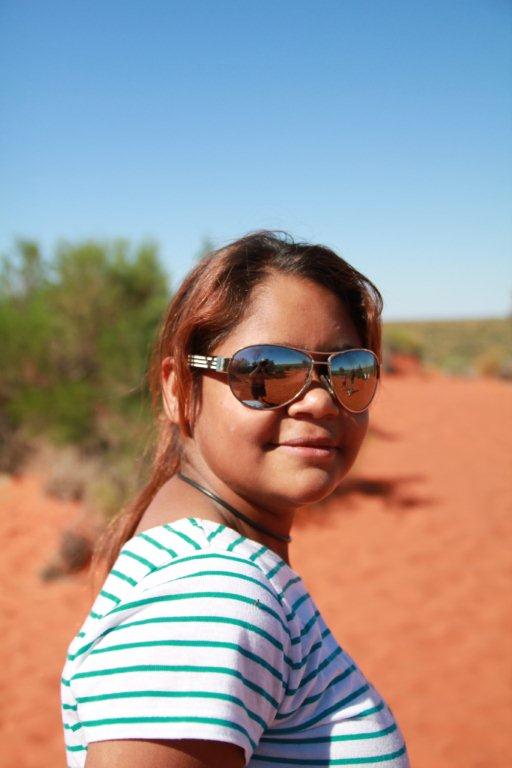 2010 MiCN Award winner Peter Lowson has been working with Indigenous Youth and Adult education programs since 1983. In 2004 he started Drum Atweme, initially as a means of encourage school attendance. Although primarily Afro-Cuban and Brazilian influenced, the rhythms are worked around the songs and stories of the indigenous participants’ culture. The program has transformed the lives of countless Alice Springs town camp-based children.
2010 MiCN Award winner Peter Lowson has been working with Indigenous Youth and Adult education programs since 1983. In 2004 he started Drum Atweme, initially as a means of encourage school attendance. Although primarily Afro-Cuban and Brazilian influenced, the rhythms are worked around the songs and stories of the indigenous participants’ culture. The program has transformed the lives of countless Alice Springs town camp-based children.
Peter has been our MiCN Mentor blogging for us this month but this week we hear from someone else...
One of the drummers from our group is this week's reporter! Her name is Sarah...
Hi. My name is Sarah and I am 14 years old this month. The native languages I speak are Luritja, Walpiri and Arrernte. I have been playing drums since I was 8 years old. With Drum Atweme I have been to Melbourne, Adelaide and Uluru. I like going on trips because I like visiting other schools and making new friends. Seeing new places gives me good experiences. My favourite bush foods are bush banana, honey ants and witchetty grub.
Music is fun to make. At a workshop in Adelaide for the WOMADELAIDE Festival I played with African drummer Sekou Kieta and also with the Bedoin Jerry Can Band from Egypt. I had never seen that many people before. It was a bit scary at first but everyone was really nice. I told my teacher that I would like to just travel around with Drum Atweme for whole year and visit lots of schools and new places.
Thursday 20 October, 2011

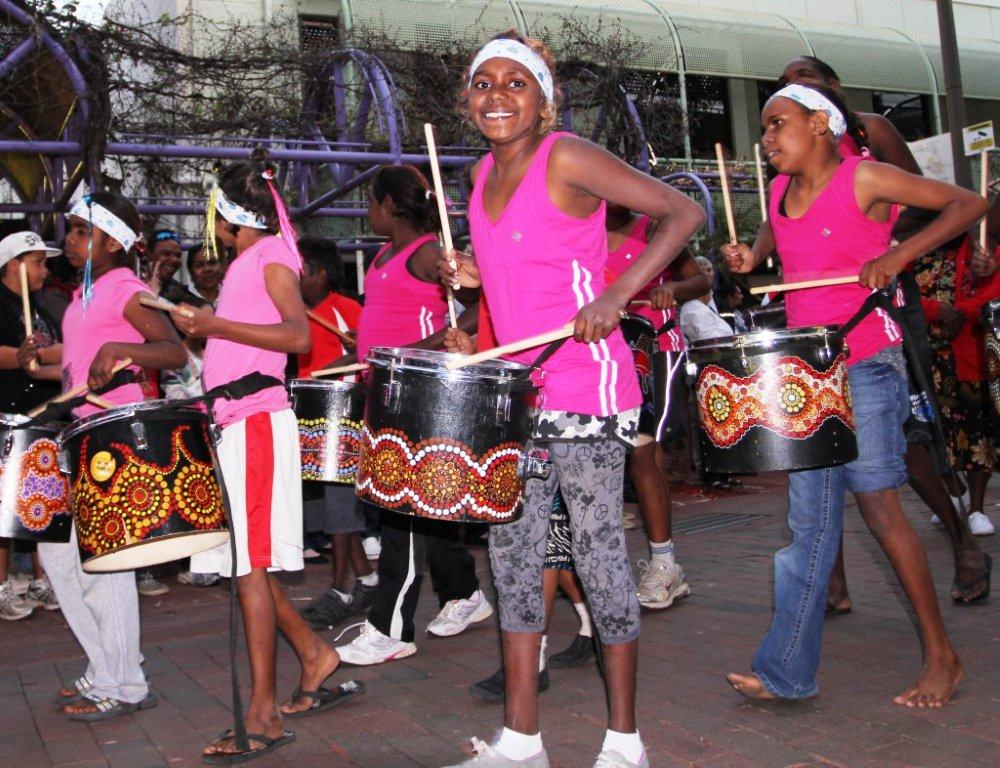 2010 MiCN Award winner Peter Lowson has been working with Indigenous Youth and Adult education programs since 1983. In 2004 he started Drum Atweme, initially as a means of encourage school attendance. Although primarily Afro-Cuban and Brazilian influenced, the rhythms are worked around the songs and stories of the indigenous participants’ culture. The program has transformed the lives of countless Alice Springs town camp-based children.
2010 MiCN Award winner Peter Lowson has been working with Indigenous Youth and Adult education programs since 1983. In 2004 he started Drum Atweme, initially as a means of encourage school attendance. Although primarily Afro-Cuban and Brazilian influenced, the rhythms are worked around the songs and stories of the indigenous participants’ culture. The program has transformed the lives of countless Alice Springs town camp-based children.
Peter will be our MiCN Mentor blogging for us this month live from Alice Springs...
I have had a pretty busy week working with the year 12 students of Our Lady Of the Sacred Heart School. About 50 of them are preparing and rehearsing a percussion piece for their 'Roast and Toast' day. This should be a lot of fun! The students a really keen and we have put together a good strong piece of music. I'm also working with year 6 kids of Sadadeen Primary for their end of the year graduation. The students are really looking forward to it and have been putting in the effort.
Thursday 13 October, 2011

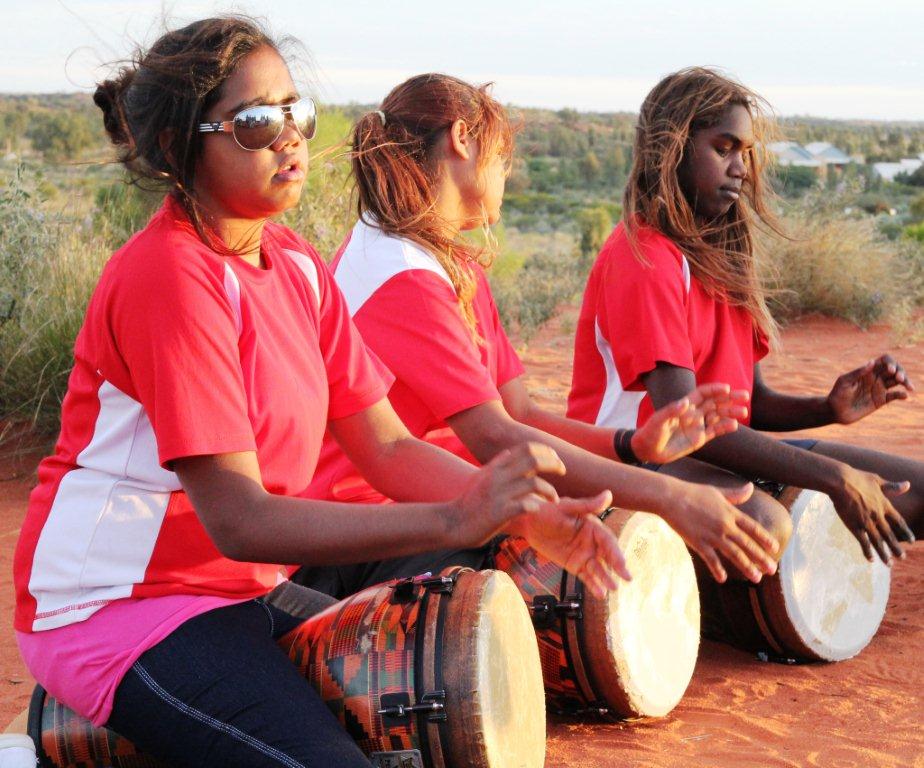 2010 MiCN Award winner Peter Lowson has been working with Indigenous Youth and Adult education programs since 1983. In 2004 he started Drum Atweme, initially as a means of encourage school attendance. Although primarily Afro-Cuban and Brazilian influenced, the rhythms are worked around the songs and stories of the indigenous participants’ culture. The program has transformed the lives of countless Alice Springs town camp-based children.
2010 MiCN Award winner Peter Lowson has been working with Indigenous Youth and Adult education programs since 1983. In 2004 he started Drum Atweme, initially as a means of encourage school attendance. Although primarily Afro-Cuban and Brazilian influenced, the rhythms are worked around the songs and stories of the indigenous participants’ culture. The program has transformed the lives of countless Alice Springs town camp-based children.
Peter will be our MiCN Mentor blogging for us this month live from Alice Springs...
The Drum Atweme program goes from strength to strength and is recognition of the importance that music plays in children’s lives. We are currently seeing 110 participants a week in the schools program.
Sunday 25 September, 2011

 What began as a regional outreach program run by the Music in Communities Award winning Leichhardt Expresso Chorus has grown into a cultural highlight on the calendar of north-western NSW. This multi-arts festival, under the artistic direction of Michelle Leonard, has grassroots community music making at its heart. The Music in Communities Network is please to be able to offer you a glimpse into the heart of this wonderful festival as we "live blog" daily for the course of the festival from 23rd to 25th September.
What began as a regional outreach program run by the Music in Communities Award winning Leichhardt Expresso Chorus has grown into a cultural highlight on the calendar of north-western NSW. This multi-arts festival, under the artistic direction of Michelle Leonard, has grassroots community music making at its heart. The Music in Communities Network is please to be able to offer you a glimpse into the heart of this wonderful festival as we "live blog" daily for the course of the festival from 23rd to 25th September.
The night sky was alight with fire sculptures as the crowd gathered at the Coonamble Pavilion for the Gala concert for the Moorambilla Festival. 500 people pulled up in cars, buses, utes and all kinds of transport to gather and marvel at what the local people, under the fire sculpture facilitator Phil Relf of IKARA, had produced.



















